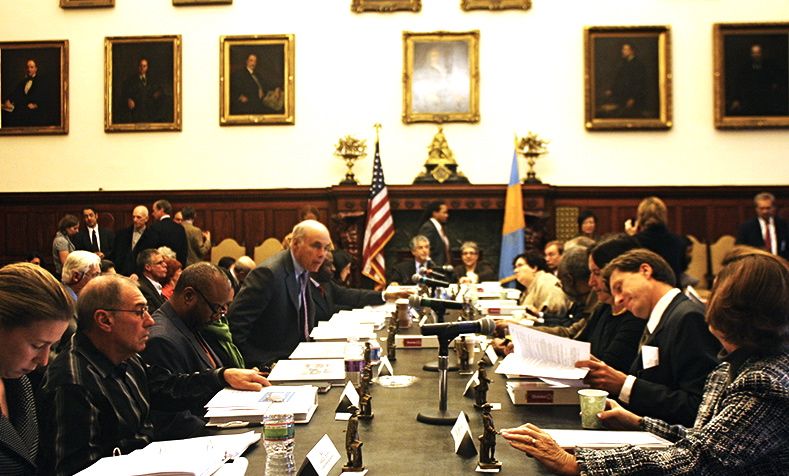Explain that Term: Unconstitutional Taking

Claudia Vargas has an interesting story in The Inquirer about a property owner who’s claiming that he’s entitled to compensation from the city, because the city hasn’t paved an access road to some undeveloped land he bought in 2005. The failure to improve the access road, he contends, constitutes a “taking” of his property.
So what’s a taking?
The term comes from the Fifth Amendment to the U.S. Constitution, which reads, in part, “nor shall private property be taken for public use, without just compensation.” So the government—in this case the City of Philadelphia—isn’t prohibited from taking private property for public use, only from doing so without fairly compensating the property owner. The city can acquire property from owners who don’t want to sell, using the power of eminent domain; it just has to pay them a fair price.
But how could the Roxborough case—in which (a) the city hasn’t actually taken anything and (b) the only property it even tried to remove was a public street—qualify as a taking?
Because, as courts have interpreted the Constitution over the years, the government doesn’t have to actually obtain anything in order for the takings clause to be invoked. If some government action sufficiently lowers the value of a property to a point where it’s no longer useful to the owner, then the government might be required to pay the owner.
In some cases, land-use regulations have been deemed so onerous as to render certain properties valueless or useless to their owners, and governments have in turn had to pay the owners for the property. In other cases, fees and other requirements have been deemed disproportionate and unrelated to certain types development.
Quoting from myself here, from a story I wrote last summer about a property rights decision from the Supreme Court:
The legal concept of what constitutes a “taking” is still evolving. When zoning came into wide use in the early 20th century, individual zoning ordinances were subject to [legal] challenges on the theory that, by saying what an individual could and couldn’t do with his or her property, governments were violating the property owners’ constitutional rights. In a landmark 1926 decision, Village of Euclid v. Ambler Realty Co., the Supreme Court ruled that basic land use regulations were a legitimate use of governmental authority.
In the late 1980s and early 1990s, two Supreme Court decisions established a test for determining whether compensation is required in individual takings cases. The “Nollan/Dolan test”—named for the plaintiffs in the separate decisions—requires that government demands of developers must have a “nexus,” or direct connection, and “rough proportionality” with the impact caused by the proposed development.
That test is intended to prevent governments from engaging in outright extortion. The city cannot require, for example, that a developer gut and refurbish a public school as a condition on a permit for building a new house, because the public good of fixing the school is unrelated to and out of proportion with the impact of the proposed development.
In one recent case, a New Jersey couple sued the local government in the Long Beach Island township of Harvey Cedars for building a dune that blocked the couple’s ocean view. The couple was seeking $500,000 from the government for what it claimed was the reduced value of the property. The state supreme court ruled in the local government’s favor. For the full story, read this piece from the New Yorker (subscription required).
In the aforementioned Supreme Court decision from last summer, the court ruled in favor of a property owner who claimed that the local government had taken his property unjustly by requiring him to improve some offsite property if he wanted to build on an area of wetlands he owned.
Long story short: by not paving the access road to the Roxborough property, has the city lowered the value of it so much that it should be required to pay the owner?
The local court says yes. But this is the kind of case that could keep a land-use attorney employed for years.
WHYY is your source for fact-based, in-depth journalism and information. As a nonprofit organization, we rely on financial support from readers like you. Please give today.



